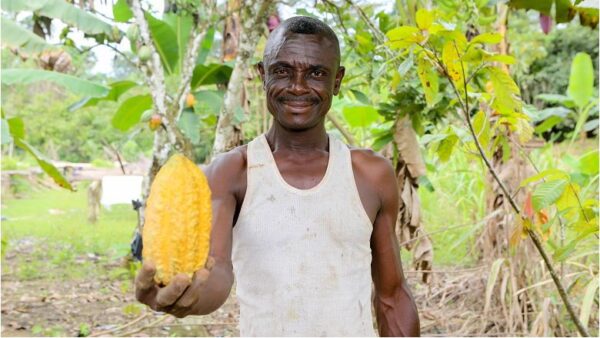Ghana has reached a major milestone in the fight against climate change by transferring 11,733 tons of carbon credits to Switzerland, becoming the first African country to issue credits compliant with the Paris Agreement. This operation, considered the largest in the world in terms of volume of carbon credits registered in this framework, was carried out through Ghana’s national carbon registry and transferred to the Klik Foundation via the Swiss emission trading registry. It is part of a bilateral agreement signed in 2020 between the two nations, in accordance with Article 6 of the Paris Agreement.
These carbon credits, called “Internationally Transferred Mitigation Outcomes” (ITMO), are a strategic lever to finance projects with high environmental impact. Ghana already plans to generate an additional 60,000 ITMOs by 2025. The total amount generated will depend on the price paid per ton, which has not been officially disclosed; however, several sources mention an indicative range between $20 and $25/tCO₂. In total, over 100,000 ITMOs could be transferred under this agreement, thanks to sustainable initiatives such as ecological rice cultivation and waste composting, supported by the United Nations Development Programme (UNDP).
Currently, fourteen projects are in preparation, with twelve led by the Klik Foundation and two supported by the UNDP. Four flagship projects have already received authorization for implementation: clean cooking stoves, electric mobility through bicycles, composting, and sustainable rice cultivation. These actions illustrate Ghana’s commitment to integrating concrete solutions to the climate, social, and economic dimensions in its ecological transition.
This innovative partnership demonstrates how carbon markets can become a driver of sustainable development. By aligning its nationally determined contributions (NDCs) with global goals for reducing greenhouse gas emissions, Ghana positions carbon finance as a key tool to intensify its climate efforts, strengthen the resilience of local communities, and attract responsible investments.
Enclosure:
Carbon credits (or ITMO): these are units representing a ton of CO₂ avoided or absorbed through an environmental project (e.g. clean cooking stoves, composting, sustainable rice cultivation). Ghana issues these units and sells them to Switzerland, which can use them to achieve its own climate goals. Article 6 of the Paris Agreement allows countries to voluntarily cooperate to achieve their climate goals through the exchange of carbon credits. This mechanism is called Internationally Transferred Mitigation Outcomes (ITMO). In this exchange, Ghana receives funding for its green projects. Switzerland, on the other hand, can account for these emission reductions in its own balance sheet. Local projects create co-benefits (health, sustainable agriculture, employment…).


